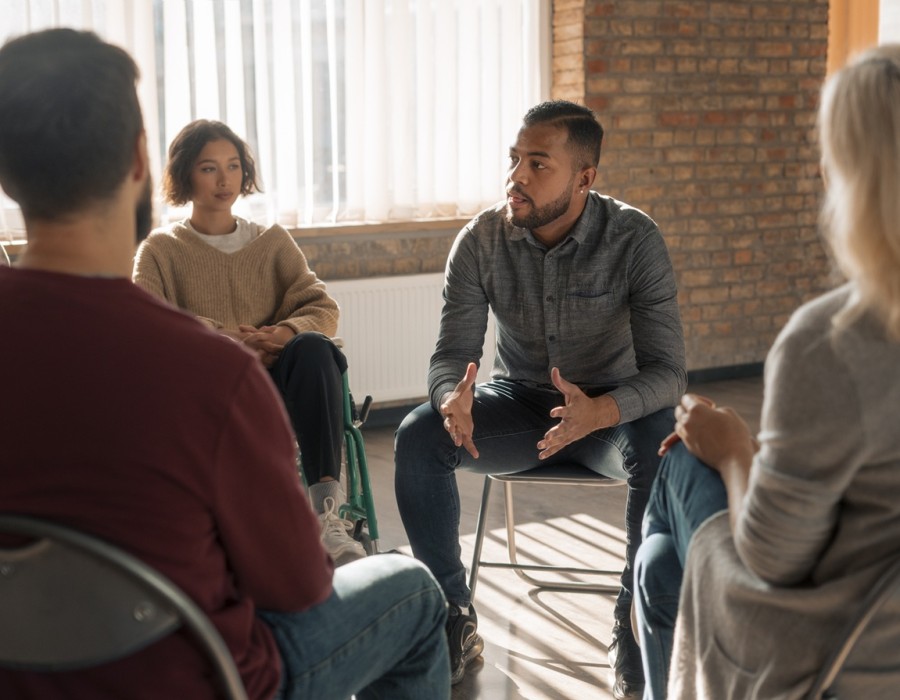Walking into therapy for the first time can stir up mixed feelings. There’s curiosity, maybe a bit of hope, and often a quiet fear of the unknown. Many people picture a stranger asking uncomfortable questions or long awkward silences. In truth, that first meeting is far gentler. It’s a start, a small step toward healing. You don’t have to have everything figured out. You just need to show up. For those seeking Therapist Counseling in Woodside, that first session is often about safety, trust, and finding your footing.
The Door You Just Opened
Your first therapy meetup isn’t about solving everything at once. It’s about connection. Think of it as a first conversation with someone who’s trained to listen, not judge. You sit in a quiet room where your words matter. You can pause, cry, or stay silent for a moment. Every reaction is okay. Most clients arrive unsure of what to say first. That’s fine too. The therapist usually leads the way with soft questions like, “What brought you here today?” or “How have you been feeling lately?”
You might share bits of your story. Some people talk about anxiety. Others talk about lost confidence, heartbreak, or past pain that still lingers. Whatever you bring is welcome. Therapy doesn’t rush. It meets you where you are.
The First Few Minutes
The session often begins with simple details. The therapist explains how things work-session time, privacy, and what you can expect. It’s also when you learn that therapy isn’t about fixing you. It’s about helping you find your own clarity. Some people notice how comforting it feels just to talk without being interrupted. Others realize how much they’ve been holding back in daily life.
A good therapist reads more than words. They notice how your shoulders slump when you mention your job or how your voice softens when you speak about your parents. Every part of you communicates. You don’t have to speak perfectly. You just need to be real.
When Feelings Surface
Sometimes emotions spill out without warning. Maybe a tear escapes while describing something painful. Maybe laughter sneaks in while recalling something small yet beautiful. The first session is often where bottled-up feelings finally get a safe release. That’s not weakness-it’s relief.
Therapists don’t rush you past your feelings. They help you stay with them long enough to learn what those feelings are trying to tell you. Some clients feel lighter right after. Others leave with questions and thoughts still swirling. Both are normal. Healing isn’t a straight path. It’s more like finding light through fog.
Building the Connection
Therapy works best when there’s a real connection. You might sense right away that you can trust your therapist. Or you might need a few sessions to feel fully comfortable. Trust builds through honesty and kindness, not pressure. If something doesn’t sit right, it’s okay to say so. The therapist’s role is to meet you halfway, to adjust, to create space that feels safe for you.
For those meeting a Therapist in Foster City, that human connection is often the first step toward growth. The therapist listens for what’s said and unsaid. They look for patterns in how you see yourself or others. Slowly, they help you untangle what’s been weighing you down.
What You’ll Talk About
Therapy topics vary. You might discuss relationships, family dynamics, stress at work, or old memories that still hurt. You might talk about boundaries-how to set them, how to keep them. The therapist listens, then helps you spot patterns you didn’t notice before. Maybe you keep putting others first. Maybe you’ve lost sight of what you need. Through gentle conversation, you begin to see things differently.
The therapist doesn’t give orders. They guide you to your own insights. It’s less about advice and more about helping you build tools to manage life with more ease. Over time, these conversations start reshaping how you handle emotions, how you respond to people, and how you care for yourself.
What You Might Feel After
After your first therapy meetup, emotions can linger. You might feel lighter, like you’ve just exhaled after holding your breath too long. Or you might feel drained from finally speaking truths you’ve kept hidden. Both are part of the process. You’ve opened a door that leads to real change, and that takes courage.
Some people reflect on what they said. Others notice small shifts in their mood. The important thing is that you showed up. You gave yourself time to heal, and that deserves recognition. Therapy is a journey toward rediscovering yourself-slowly, gently, honestly.
Setting Expectations
The first session doesn’t fix everything. It simply sets the tone. You’ll leave with a sense of direction, maybe even a tiny bit of hope. You’ll know that therapy isn’t about being “broken.” It’s about growth, connection, and emotional strength. Each session builds on the last, helping you feel more grounded and confident.
Over time, you’ll start noticing subtle changes. You might speak up more, feel calmer in situations that once triggered anxiety, or set healthier limits with others. These are small victories worth celebrating. Therapy is not a quick fix-it’s a gradual return to yourself.
The Bottom Line
Your first therapy meetup is more than a conversation-it’s the start of healing. It’s where you stop carrying everything alone and start sharing the weight with someone trained to help. You’ll begin to see that change doesn’t always come from grand gestures but from small honest moments.
At Liberty Through Therapy, Minjun Wang creates this space with empathy and warmth. She listens deeply and helps clients uncover the roots of anxiety, trauma, and emotional pain. Her approach blends proven methods with human connection that encourages self-discovery and growth. For anyone seeking comfort, clarity, or courage to heal, she offers a safe path forward-one honest conversation at a time.





Comments